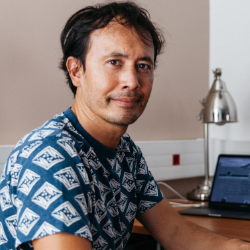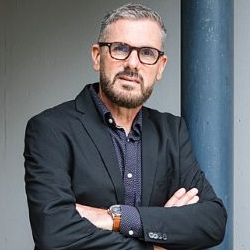
|
|
|
Presentations > Keynote speakersLaura Cantini
Laura Cantini is a G5 junior group leader heading the Machine Learning for Integrative Genomics group. She is a CNRS researcher and a Prairie chair. Mathematician by training, Laura Cantini works at the interface of machine learning and genomics. Due to the advent of high-throughput technologies, multiple large-scale quantitative measurements, a.k.a. omics, can be accessed for the same set of biological samples or cells. The focus of Laura Cantini’s research activity is to design machine learning methods able to co-analyze the numerous available omics data and translate them into actionable biological knowledge. By applying the developed approaches to patient-derived data, she contributes to improve our understanding of cancer heterogeneity and its underlying molecular mechanisms. Laura Cantini received several awards: CNRS Bronze Medal (2024), Prix Paoletti (2022), L’Oréal-UNESCO for Women in Science (2018). Tâm Mignot
Tâm Mignot is a research director in microbiology and head of the Bacterial Chemistry Laboratory, specializing in bacterial cell biology. Myxococcus xanthus is a predatory bacterium essential to soil ecology. It is able to glide over solid surfaces to feed on other micro-organisms. It is at the heart of Tâm Mignot's internationally acclaimed work, which includes discovering the molecular mechanism it uses to detect and kill a wide range of prey. Tâm Mignot's work also sheds light on how M. xanthus manages to move collectively and form multicellular structures resistant to environmental stress. Tâm Mignot's research has greatly enhanced our understanding of bacterial communities. It has also contributed to the creation of new imaging and artificial intelligence technologies, and to the development of the first commercial microfluidic device adapted to the study of bacterial growth. Tâm Mignot received the CNRS Silver Medal in 2023 and the CNRS Bronze Medal in 2011. Marc Antonini
Marc Antonini is a CNRS research director at the Computer Science, Signals and Systems laboratory in Sophia-Antipolis (I3S), where he heads the MediaCoding team. He specializes in data compression, whether for images, videos or 3D models. His doctoral work, for example, was used for the JPEG 2000 standard, and his early work at CNRS, in collaboration with CNES, for one of the systems onboard the Pleiades satellites (a pair of optical Earth observation satellites). The author of thirteen patents, Marc Antonini has regularly collaborated with various manufacturers and co-founded the start-up Cintoo, dedicated to the capture and visualization of 3D point clouds. Since then, he has turned his attention to synthetic DNA storage. Marc Antonini heads the MoleculArXiv research program (PEPR), endowed with twenty million euros over seven years to develop this technology of the future, and has participated in the European OligoArchive program. On the same theme, Marc Antonini co-founded the start-up PearCode and presided over the design of JPEG DNA, an image compression standard adapted to DNA. Marc Antonini received the CNRS Innovation Medal in 2023. From Molecules to Ecosystems: microbial predators in soil ecology |




